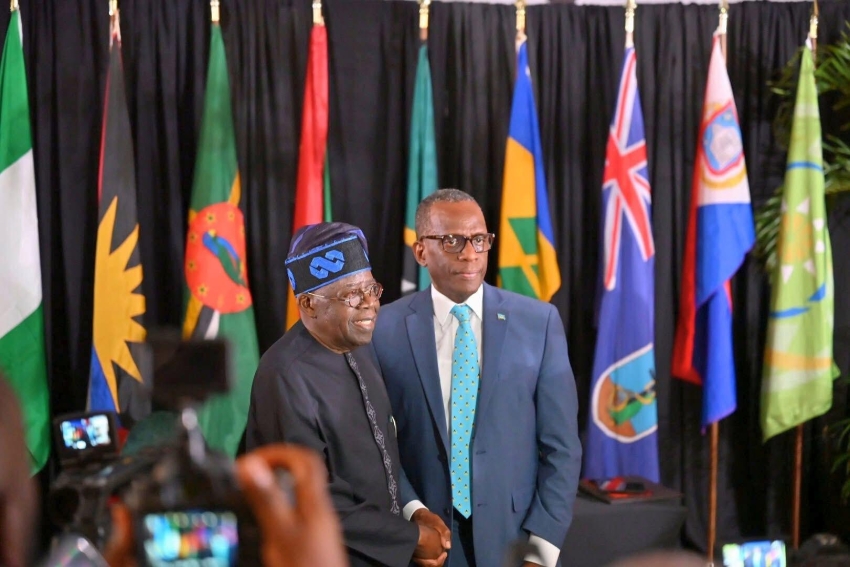Clearly, this political leader, who has been characterised as visionary and astute by many, did not see the wisdom of our newly independent and emerging states forging relationships outside the colonial and neocolonial space. This same prime minister referenced above, a number of years later, would have observed that the very same centres of power which he apparently sought to placate by this stance, had no “friends” but essentially had “interests.”
In the post-World-War 2 period, when the national liberation and independence movements which had germinated in the earlier period of the 20th century were gaining momentum, many of our political elites did not see the need to make a definitive break with the old relationships, and to develop a new architecture of trading, economic and financial relationships. Others apparently saw it, but considered that the geopolitical space to manoeuvre was fraught and one had to tread exceedingly cautiously. Moreover, there were what appeared to be insurmountable constraints to developing many of the institutions that would be necessary vehicles for such transformation.
The United Workers Party however, never seemed to get out of the narrow and moribund world view that saw us forever at the mercy of our former colonisers. Any geopolitical initiative which seemed to run counter to what was prescribed by our former “mother countries” and their allies was to be strongly deprecated and discouraged. These were our traditional friends whom we could not displease. In this context, the move of a number of Caribbean countries to strengthen ties with Cuba was seen as bold and even provocative. The emergence of nationalist, left or even mildly social democratic political thought and trends in Saint Lucia and the Caribbean was a minefield to be navigated carefully.
And so it is within this context that we may analyse the puerile, ill-informed, and frankly toxic disposition of the leadership of the United Workers Party to the visit of President Bola Ahmed Tinubu and the conferring on him of Saint Lucia’s highest honour, Knight Commander of the Order of Saint Lucia. It must be of note that prime minister Narendra Modi of India has been awarded a similar honour by the Government of Trinidad and Tobago.
Consistent with this disposition, we have been cautious of developing links even with countries which are not necessarily on the Western “not to touch List” - particularly where it may be construed that such bilateral and multilateral relationships may ultimately, at a larger level, challenge the old geopolitical status quo. This is demonstrably so at a time when the move to develop South-South relationships which seek to diversify our trade, finance and cultural relations, might be viewed with much suspicion by those of the “First World” or “Global North” who have arrogated to themselves the role of author and enforcer of a uni-polar world order.
It is within this context that one must view the veritable vitriolic attacks by the United Workers Party on any move by the Saint Lucia Labour party to develop South-South links, even in our own region. This is what characterises their positions on our relationship with Venezuela (incidentally, a relationship that Sir John highly prized), their uneasy relationship with Cuba, their denigration of Haiti. It is not simply a matter of political expediency as some tend to believe. It is characteristic of the self-hate of an organisation that has lost its way and have not come to terms with the geopolitical imperatives that must take us well beyond the mistaken idea, that to develop such relationships, far from being posturing on the world stage, is in fact a necessary condition of developing and maintaining sovereignty.
The visit of President Bola Ahmed Tinubu, and the Flambeau’s shameful disposition to it, cannot be separated from the article of faith pronounced by their current leader, that “colonialisation [has] a conscience”. And we must not be misled by the fact that there was a cabinet conclusion by the Chastanet government to establish diplomatic relations with Nigeria. We should note that this decision was never implemented by them, and that all their actions by way of foreign relations, have generally run counter to a progressive posture
There are those who see such relations simply in terms of being able to get handouts from some big country - some godfather which you dare not offend. It however is fundamentally about developing mutual relations in the trade, economic, cultural and finance spheres, which will redound to the advancement of our peoples across what is now described as the global south. Too often, the development of our people is stymied by design, by those who hold the proverbial handle of correspondent banking and the architecture of supply chains.
That is not to say that we should spurn beneficial relationships with the global north. It is clear however that the global south, despite its very substantial resources , will not break out of the cycle of underdevelopment imposed on us by colonialism, and reinforced by the institutions of neocolonial domination, if we do not, with due resolve, cultivate the new relationships that we are discussing.
As I write, President Tinubu will have left for Brazil. Prime Minister Modi of India has left Trinidad & Tobago for the same BRICS meeting that Sir Tinubu will be attending. While our cultural historical and ancestral ties with these countries of Asia and Africa are undeniably very important, the far larger and more profound imperatives of the sustained and sustainable development of our peoples, by decoupling ourselves from one-sided economic and trade relationships and becoming part of a new and empowered multi-polar world, cannot be overemphasized.
Commentary by STANLEY LESTER PASCAL


